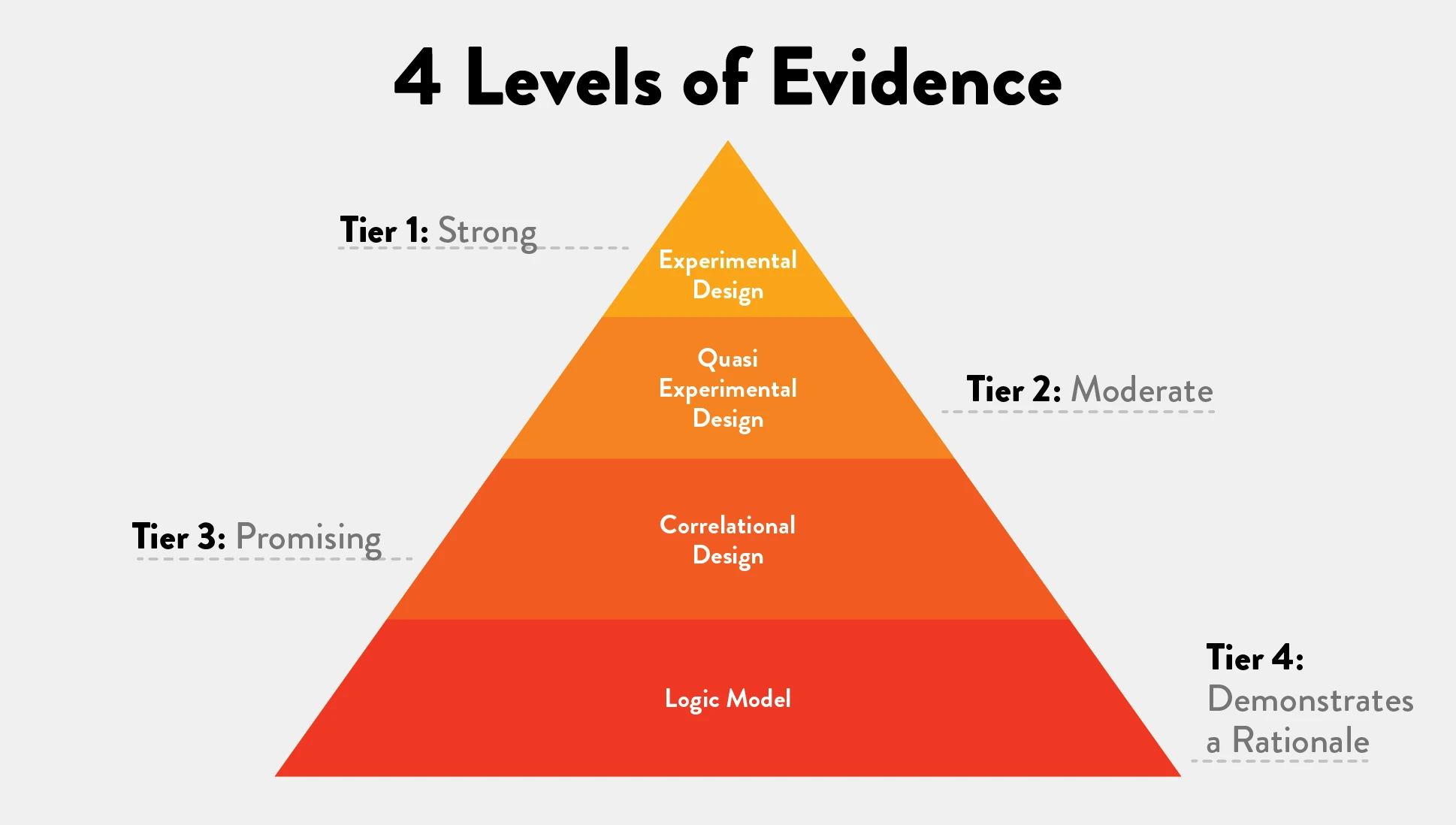
In our first article, we provided an overview of the kinds of research to look for from edtech providers in determining the potential of the product to deliver on its promises for the learning process, including foundational research, user research, and impact educational research. Now, it’s time to delve further into education research and what high-quality data means for the effectiveness of technology and student achievement.
Read on to discover how evidence-based education practices lead to effective teaching that supports students.
Defining rigorous research
In order to have confidence in the conclusions of a research study, it is important that it was conducted in a scientifically rigorous manner. This means that the design, methodology, and analysis of the results were conducted with strict adherence to the scientific method, ensuring unbiased and well-controlled types of evidence.
For instance, a scientifically rigorous study of edtech would employ a methodology that allows us to isolate the impact of a specific intervention on student outcomes. However, in education research, it is also important to recognize that there is usually no one-size-fits-all approach to educational interventions. Attending to context and population when implementing and researching edtech is therefore critical for the interpretation and applicability of results, making a combination of quantitative and qualitative data particularly important for assessing outcomes.
Why educational technology products thrive on robust research
By conducting rigorous research, edtech providers can validate the efficacy of their products and inform product improvement to better meet the needs of diverse learners. Educators and administrators rely on this evidence-based information to make informed decisions about which technologies to integrate into their learning environments.
Through collaborations between providers, research organizations, and local educational agencies, we can uncover valuable insights into the effectiveness of technology in education. Investing in rigorous research not only enhances the efficacy of educational technology but also contributes to the continuous improvement of teaching and learning practices.
Understanding tiers of evidence
One framework commonly used to evaluate the quality of impact research evidence is the Every Student Succeeds Act (ESSA) tiers of evidence. According to ESSA, evidence-based interventions are categorized into four tiers, with Tier 1 representing the highest level of rigor in research methodology.
Tier 1 includes research utilizing randomized controlled trials (RCTs). Tier 2 includes evidence from quasi-experimental studies, while Tier 3 consists of evidence from well-designed correlational studies. These levels can be helpful indicators for evaluating the design of the study.
Websites such as the Institute of Education Sciences (IES) What Works Clearinghouse (WWC) and Evidence for ESSA index some of these results. However, while a number of organizations provide validation of research, there is no official organization for the evaluation and validation of research in education as meeting the ESSA criteria.

Ensuring quality: The peer review process for research findings
Other indicators of the quality of research include where that research can be found. In general, being published in a peer-reviewed journal or conference proceeding lends credibility to a study. The peer review process means that the study has been deemed high-quality through blind reviews by a panel of expert researchers in terms of the theoretical background, participant sampling, data collection, data analysis, and conclusions.
ExploreLearning products, for instance, have been put to the test in 20+ such research studies and have been featured in an additional 22+ third-party research studies released by university presses. The high standards inherent in the processes of academic research can help to instill confidence in the findings and conclusions of these researchers regarding the impact of edtech programs.
Tailoring research to educational settings
High-quality research in edtech should also consider the educational setting in which the product is being used and the unique challenges and needs of students from different backgrounds. By including a wide range of educational contexts, students, and teachers in their research, educators can assess the relevance and applicability of findings to their own contexts and specific teaching strategies.
Exploring alternative methodologies
While RCTs (ESSA Tier 1) are often considered the “gold standard” in high-quality research methodologies, more in-depth methodologies, such as case studies and qualitative inquiries, may be even more informative for school officials considering adopting programs. For example, a qualitative study exploring teacher perceptions of a gamified learning platform can provide valuable insights into its usability and student engagement.
Key takeaways on the importance of rigorous research
Edtech has the potential to transform education and empower learners. When educators have access to evidence-based practices supported by rigorous research, they can make informed decisions about which tools and strategies to adopt in their classrooms. This not only enhances the quality of teaching and learning but also helps address equity issues by ensuring that all students have access to high-quality educational resources.
By adhering to scientific standards, addressing specific educational needs, and employing diverse research methodologies, such research empowers educators to make informed choices that positively impact student learning outcomes and academic achievement.
Know an educators who is evaluating the quality of impact evidence for edtech products? Download and share our High-Quality Research Checklist.
Discover the high-quality research behind ExploreLearning math and science solutions.
About the Author

ExploreLearning Senior Researcher Megan Conrad, Ph.D.
Dr. Megan Conrad, Senior Researcher for ExploreLearning, shares her insights in our Measuring Impact Series. In her current role, she works with district administrators, curriculum coordinators, and teachers to uncover evidence of student success from product usage and helps districts make evidence-based decisions regarding product implementation.
She earned her Ph.D. in Psychology (specializing in Developmental and Cognitive Science) from Rutgers University and has 15 years of experience designing and conducting research in child development, learning environments, and youth & technology. She previously worked in higher education as an Assistant Professor of Psychology and founded a research lab that explored children’s STEM learning in informal learning settings.
Sign up to get the latest updates from ExploreLearning via occasional email.
